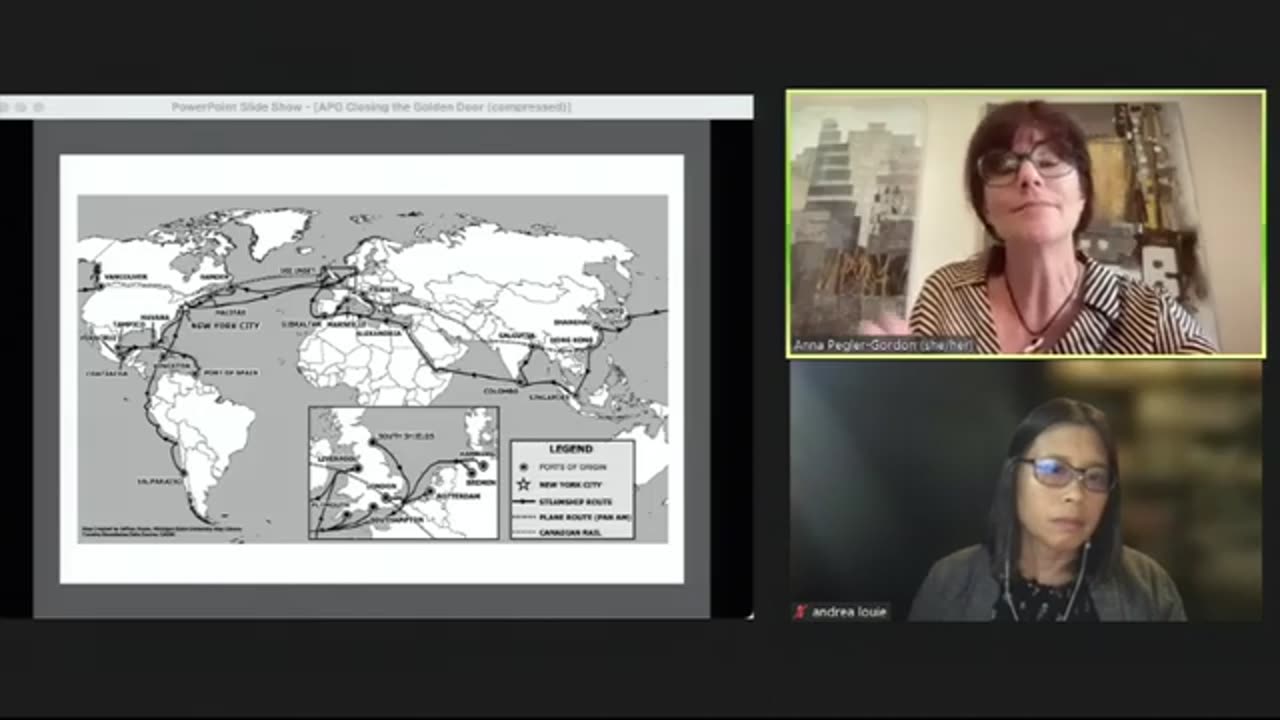Premium Only Content

Closing the Golden Door Asian Migration and the Hidden History of Exclusion at Ellis Island
Edited for technical difficulties...missing approximately 7 minutes
The immigration station at New York’s Ellis Island opened in 1892 and remained the largest U.S. port for immigrant entry until World War I. In popular memory, Ellis Island is typically seen as a gateway for Europeans seeking to join the “great American melting pot.” But in this fresh examination of Ellis Island’s history, author Anna Pegler-Gordon reveals that, it was also a major site of immigrant detention and exclusion, especially for Chinese, Japanese, and other Asian travelers and maritime laborers who reached New York City from Europe, the Americas and the Caribbean, and even within the United States. The author draws on immigrants’ oral histories and memoirs, government archives, newspapers, and other sources to reorient the history of migration and exclusion in the United States.
Tell us how we did: https://www.surveymonkey.com/r/7GNXBLP
Immigration programming is made possible in part by the National Archives Foundation through the generous support of Denise Gwyn Ferguson.
Fair Use Disclaimer:
All content that uses public funds by any US government agency, state, or local government is available for worldwide use and reuse under the terms of the Creative Commons CC0 1.0 Universal license. Included within these resources may be copyrighted material(s), the use of which has not always been specifically authorized by the copyright owner. Any copyrighted content used is for educational, research, reporting, commentary, entertainment, informational, and criticism purposes.
In our efforts to provide the Rumble community with quality content that is “fair use” this content is covered under Section 107 of the Copyright Act ( https://www.copyright.gov/fair-use/ ).
If you wish to use this copyrighted material for purposes that go beyond “fair use,” you must obtain permission from the copyright owner.
If you believe that any copyrighted materials appear in this content and you disagree with our assessment that it constitutes “fair use,” please get in touch with us.
-
 LIVE
LIVE
Badlands Media
8 hours agoBadlands Daily: August 26, 2025
4,031 watching -
 LIVE
LIVE
GritsGG
2 hours agoWin Streaking! Coloring Hair at End of Stream! Most Wins 3435+ 🧠
163 watching -
 1:56:45
1:56:45
Dear America
3 hours agoNO MORE BURNING FLAGS!! 🇺🇸 Trump Signs Order Making It ILLEGAL!! + Trump Is SUING NEWSOM!
73.8K58 -
 LIVE
LIVE
JuicyJohns
3 hours ago $0.64 earned🟢#1 REBIRTH PLAYER 10.2+ KD🟢
102 watching -
 1:56:23
1:56:23
Law&Crime
2 hours ago $0.63 earnedLIVE: Adelson Matriarch Murder Trial — FL v. Donna Adelson — Day 3
10.7K -
 LIVE
LIVE
Major League Fishing
4 days agoLIVE! - Fishing Clash Team Series: Challenge Cup - Day 3
163 watching -
 LIVE
LIVE
Surviving The Survivor: #BestGuests in True Crime
2 hours agoCourt Stream: Donna Adelson Trial DAY 3 of Testimony
70 watching -
 LIVE
LIVE
Wendy Bell Radio
6 hours agoWhat Hill Will Democrats Choose To Die On?
7,677 watching -
 1:15:15
1:15:15
JULIE GREEN MINISTRIES
4 hours agoTHE CIA HAS BEEN A GIANT IN THIS LAND THAT WILL BE TAKEN OUT
91.4K154 -
 3:58:26
3:58:26
The Bubba Army
1 day agoBURN The FLAG, Go to JAIL! - Bubba the Love Sponge® Show | 8/26/25
68.5K30